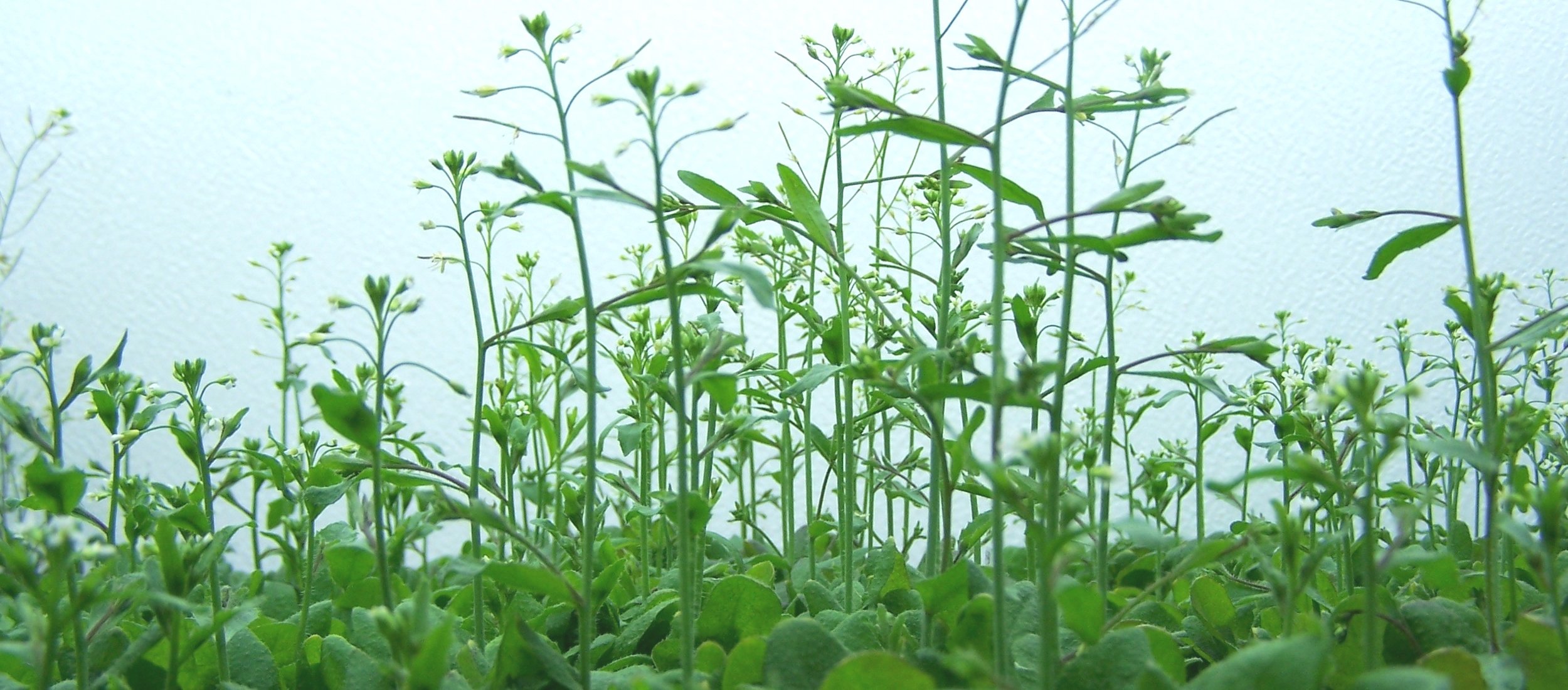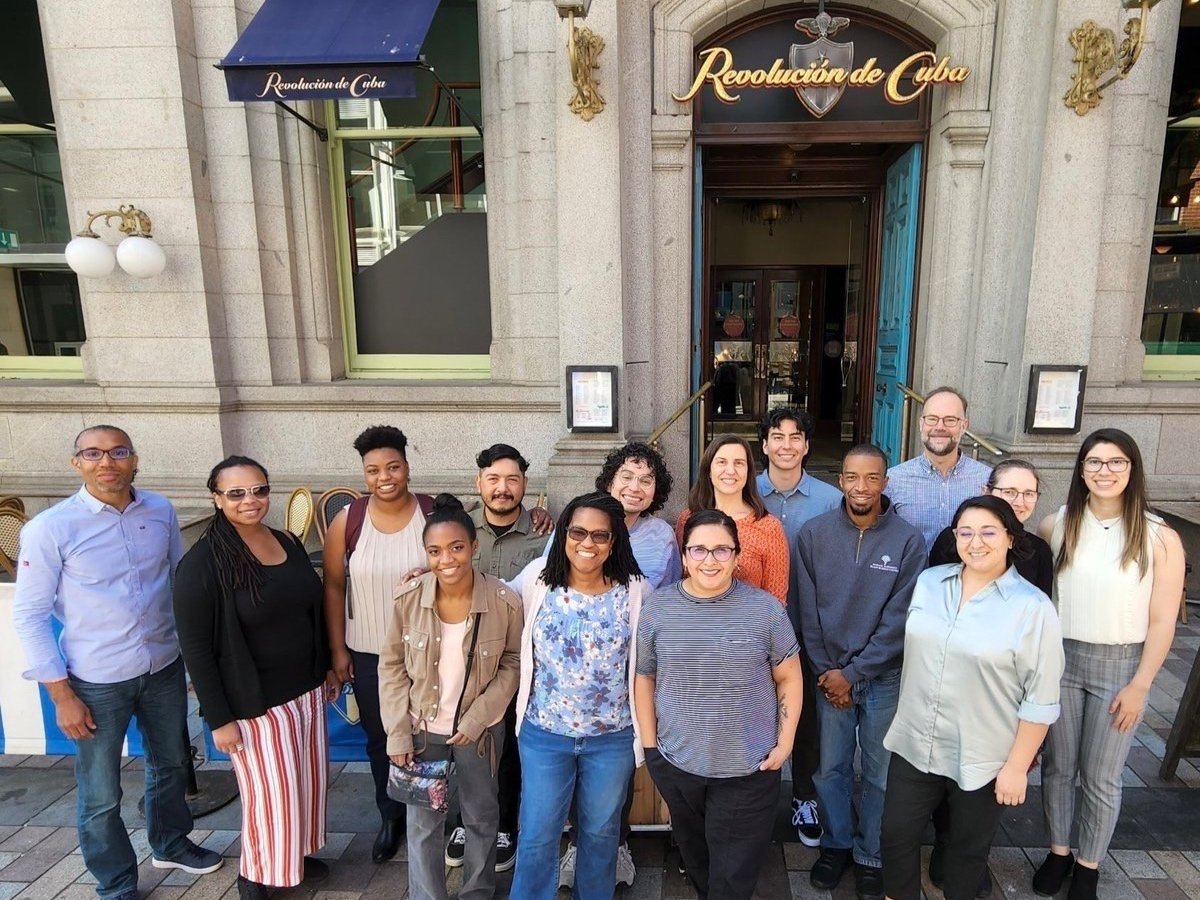
A community centered on research, training, diversity, inclusion, & outreach with the reference plant Arabidopsis thaliana
The North American Arabidopsis Steering Committee (NAASC) formed in 1992 to increase communication among North American & international Arabidopsis scientists.
NAASC is a member of the Multinational Arabidopsis Steering Committee (MASC), founded to strengthen international collaboration & coordination- particularly for projects that can be successful only by combined international efforts. Much of the success of the Arabidopsis community is due to the high level, strategic coordination by MASC & the ICAR- the annual venue for the Arabidopsis community to meet, collaborate, & share the latest cutting-edge research.
NAASC’s first major effort was as part of the multi-national effort to produce the sequence of the first plant genome. The Arabidopsis genome sequence was released in the year 2000.
NAASC has organized ~half of the International Conferences on Arabidopsis Research (ICAR), the largest annual gathering of Arabidopsis researchers in the world. The rest have been organized by MASC members.
NAASC prioritizes initiatives and activities to promote & support Fundamental Plant Biology
A core NAASC value is supporting Diversity, Equity, Inclusion, & Belonging (DEIB). Focus areas are support of early career scholars & members of underrepresented groups in plant biology.
Artist: Jin CY Liao
NAASC developed this Arabidopsis Community website to serve as an information hub and resource, and to better engage interested members of the global community. This Arabidopsis Community group is open to interested people around the world and joining makes you a member of our society. The ‘backbone’ organization of the society is NAASC, which is registered as a non-profit charity in the United States. In our community-supportive efforts, we also strive to collaborate and coordinate with additional community resources including MASC, ABRC, TAIR, European Stock Centre and others shown here.
We are a small, grassroots society, with a 10-member, elected board of directors, that is currently supported by a single part-time staff member to implement all our activities. We welcome (and need!) involvement and input from a broad and diverse membership to help develop and prioritize our community-serving activities and initiatives. Join Today!
1. Fundamental plant biology knowledge generated in Arabidopsis is vital to understanding how all plants work, and to help solve many of society’s biggest challenges
Sustained, robust funding, training, and collaborative efforts are vital to ensuring that there is a robust pipeline of basic discoveries, including those that will underpin applied and translational plant biology efforts.
2. Organizing North American ICARs
The first Arabidopsis meeting was held in Germany in 1965, attended by an estimated 25 people. The “modern era” of Arabidopsis research began in the late 1980s due to its relatively small, diploid genome, rapid life-cycle, and simple growth conditions. This led to it becoming the choice as a new reference flowering plant model system. It was the first plant genome (and third eukaryote) to be sequenced, after S. cerevisiae (baker’s yeast) and C. elegans (nematode worm). The availability of a fully-sequenced genome ushered in a rapid acceleration in research, datasets, and development of resources and tools.
The rapid acceleration of research and development in Arabidopsis during the 1980s led to robust, annual meetings of the global community at the annual International Conference on Arabidopsis Research (ICAR).
3. Initiatives to support Diversity, Equity, Inclusion, and Belonging in our community
Arabidopsis will continue to be a driver of innovation and diversity in plant science because it is so easily accessible, there are extensive tools and resources for it, and because there is long-term collaboration and cooperation within a global community of scientists that use Arabidopsis.
To ensure that Arabidopsis continues to be valuable to science and society, a robust, diverse, and self-renewing community is necessary. Data and studies support that there are clear benefits of diversity and inclusion yet progress in these areas is slow.
Two DEIB include the Inclusivity Scholars Program (ISP), focusing on members of underrepresented groups in US STEM, and Early Career Scholars, which are students, postdocs, and early career faculty. Support for these groups is provided by participation funding for ICAR, professional development activities and cohort building.
Through 2007, NAASC organized 2 of every 3 ICARs, with the third year organized by a volunteer MASC member outside of North America (although NAASC also organized ICAR 2007 in Beijing, China, with NAASC member Xing Wang Deng as meeting chair)
In 2007, during the annual MASC meeting, the community adopted a 3 year cycle:
North America - Europe - Asia/Pacific Rim.
The decision to alternate world regions reflected the increasing level of research around the world and because it would allow for greater global participation, especially early-career scholars. MASC tracks global involvement of the community and the ICARs, including the first virtual ICAR (2021, due to Covid-19) and the first hybrid ICAR (2022-Belfast).
“The twentieth century began with the rediscovery of Mendel’s rules of inheritance in pea, and it end[ed] with the elucidation of the complete genetic complement of a model plant, Arabidopsis. Looking ahead.. productive paths of crop improvement, based on enhanced knowledge of Arabidopsis gene function, will help meet the challenge of sustaining our food supply in the coming years.”
“NAASC is committed to promoting a global plant sciences community that reflects the true diversity of all its members.
To further this mission, we have created the DiversifyPlantSci online resource, a list of plant biologists from under-represented groups to reference as you seek speakers, reviewers, and participants for career or mentorship opportunities.
We hope to increase diversity and inclusion by making it easy to expand invitations past one’s personal networks.”
ISP participant funding provided by NSF Award #1518280 Disclaimer: Any opinions, findings, and conclusions or recommendations expressed in this material are those of the author(s) and do not necessarily reflect the views of the National Science Foundation.
Friesner, et. al. MBOC, 16 Mar 2005
“What if plant scientists were as diverse as the plants we study?”
— Liz Haswell & Jennifer Nemhauser, past NAASC steering committee members
READ THE COMMENTARY
“When I was making the transition from working with Arabidopsis to working in [the] biomedical [funding environment] I was happily surprised to learn that much of the knowledge I accrued during my almost 40 years with Arabidopsis was directly relevant to understanding the biomedical literature; the basic tools and cell and molecular biology were quite portable.”





